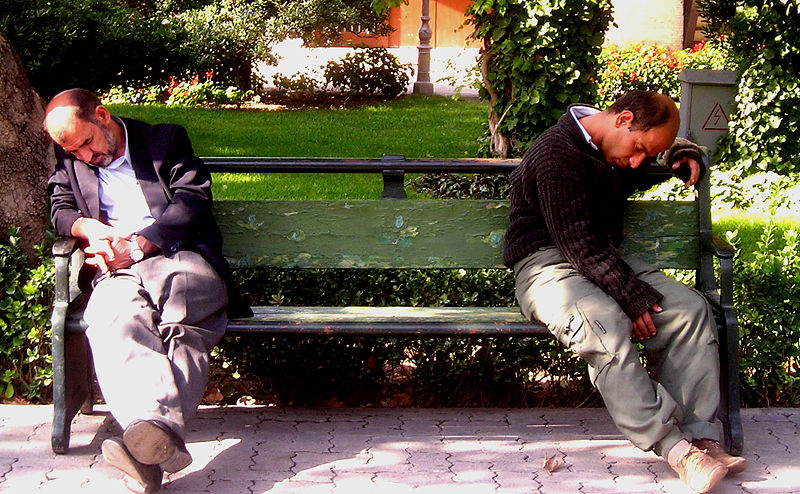
There's a cute paper coming up in the journal Sleep Medicine about how the ancient Greeks and Romans explained dreams. It's by Joseph Barbera - no not the animator, but a sleep scientist based at the University of Toronto. He explains that the predominant view was that they were messages sent from the gods (although given the surreal nature of most dreams I can't imagine how this was anything other than totally confusing!) But this was also the first time that people started thinking about dreams in a more rational, naturalistic way. A philosopher called Democritus (460-370 BC), who came up with the excellent idea that everything in the universe is made up of tiny particles called atoms, thought that everything we perceive was due to fast-moving films of these atoms hitting our sensory organs. He figured that when they bypass the sensory organs and hit the soul directly, we dream.
The great philosopher Plato (427-347 BC) was one of the first to consider a psychological component to dreams. He said: "...in all of us, even the most highly respectable, there is a lawless wild beast nature, which peers out in sleep." In that respect, Plato wasn't so far from Freud's wish-fulfillment theory of dreaming, although Freud thought the wishes expressed in dreams are disguised, whereas Plato saw our desires as being played out more directly.
But out of all ancient scholars that we know about, Aristotle (384-322 BC) came up with the explanation that's closest to our understanding today. For him, dreams had no purpose. He firmly rejected the traditional view that dreams could foretell the future, arguing that if this appeared to happen it was just a coincidence. He saw wakefulness and sleep as characterised by the presence and absence of perception, respectively, and argued that we dream when the mechanism of perception is activated in the absence of external stimulation. He also said that the suspension of judgement in sleep causes us to accept the things we see in dreams as real. Barbera notes that this is supported by modern neuroimaging studies, which have shown that activity of the brain's frontal lobe is suppressed during REM sleep.
When I first started learning about Aristotle, I thought he was overrated. After all, he thought that the Earth was at the centre of the universe - a misconception that sent astronomy down the wrong path for centuries. But the more I read about him, the more I'm in awe of him. He didn't get everything right, but the insights he was able to gain about the world around him, in the absence of all the scientific evidence that we take for granted today, was so impressive. As Barbera points out, scientists weren't able to improve much on Aristotle's theory of dreams until the discovery of REM sleep in the 1950s. In that respect I guess he was further ahead of his time than even the Antikythera mechanism.
[Photo by Bertil Videt.]